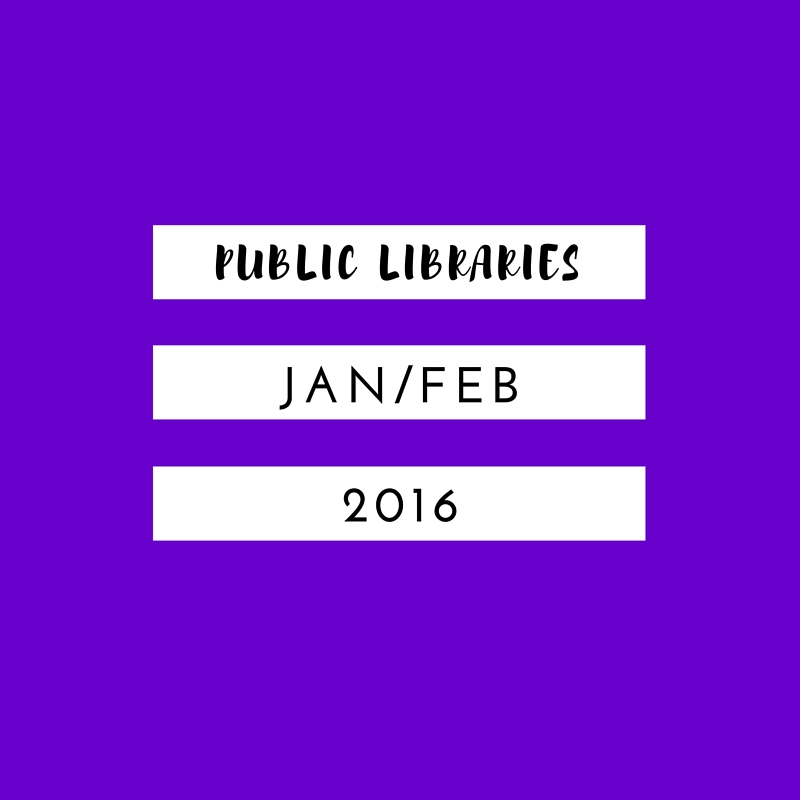New Product News January/February 2016

BRIAN R. SMITH is Reference Librarian for Palm Beach County (FL) Library System. If any new library products have caught your eye lately, please contact Brian at smithb@pbclibrary.org. Brian is currently reading The Infinite Sea by Richard Yancey and The Walking Dead: Compendium One by Robert Kirkman.
Mozilla Teaching Activities
Mozilla is the creator of Firefox, one of the most popular web browsers in use. What you may not know is that Mozilla also has an excellent instructional presence on the Internet. Mozilla Teaching Activities is a free valuable resource for libraries looking to teach beginning users, starting with Web Literacy Basics, a six-part series that helps learners become familiar with reading, writing, and participating on the web. In addition, learners will discover the foundations of the web through collaboration and production.
Other lessons include web design, animation, JavaScript, passwords and security, and coding for girls. Each tutorial lists the level of learner (beginner to intermediate) and the individual or entity responsible for developing the lesson. Included is the opportunity to join a Hive Learning Network, or to start a club in your community. Also includes tools, provided by Mozilla, that are free and open source, and can be used in a variety of ways to teach learners how to read, write, and participate on the web.
Mozilla encourages you to host a Maker Party to reach out to your learning community. Their Maker Party has become a popular experience for learning and making on the web. The parties encompass HTML, building robots, and learning about remixing by using paper and scissors. People of all ages and from various backgrounds have gotten together to gainfully explore the mechanics, citizenship, and culture of the web through their Maker Party. The entire Teach Mozilla website is set up in a visually friendly manner that is easy to navigate and welcoming for students of all persuasions. Your organization could seamlessly incorporate elements of Teach Mozilla to provide free tech resources at your library in a classroom
or individual setting.
YALSA’s Teen Tech Week
While not necessarily a new product, the Young Adult Library Services Association’s (YALSA) 2016 Teen Tech Week will focus on STEAM (science, technology, engineering, art, and math) for underserved teens. During Teen Tech Week, libraries will have the opportunity to utilize new technologies, such as Mozilla Teaching Activities, to engage with the theme of “Create it at your library.” This theme impels libraries to showcase how libraries are connecting with teens to teach them essential STEAM skills. Teen Tech Week is March 6-12 and YALSA members can apply for one of twenty $1,000 scholarships to support digital literacy programming for and with underserved or marginalized teens.
Teen Tech Week 2016’s official sponsor is Best Buy who will be conducting web creation seminars in thirty cities around the United States. Best Buy is involved to help teens build the digital skills they need to succeed in their twenty-first century careers and their goal syncs closely with YALSA’s mission. To learn more about this sure to be exciting and engaging week, please visit http://teentechweek.ning.com.
Libraries can register and find resources and sponsors to help make sure they have a successful Teen Tech Week. You can also find out more about YALSA and join their organization along with accessing free digital downloadable posters and bookmarks to promote the event. Overall this looks like a unique opportunity for public libraries to have a week full of vital and engaging programming for underserved or disengaged teens.
TechBoomers
TechBoomers is a website dedicated to teaching older folks basic computer skills and how to navigate popular websites. Although not all of the website tutorials are of a strict educational nature (examples of this include Amazon, Facebook, and several dating sites) there are still some quality tutorials available. There are many social media site courses that would be valuable for library patrons to learn, including LinkedIn, Goodreads, Twitter, and Instagram. There are six tutorials for OverDrive, and one each for Google Drive, Gmail, and Google. Even though many courses on TechBoomers are for commercial websites, and ads are placed on several pages, they have a page dedicated to library sponsors. Prominent library sponsors include Multnomah County Library, Baltimore County Public Library, and the Denver Public Library. You can sign up for TechBoomers with your Facebook or Google account.
Automated Storage and Retrieval Systems
The New York Public Library will begin using a sophisticated book-storing system seventeen feet below Bryant Park next to the library. The books will be ferried by a book retrieval system, similar to miniature mine cars, and will arrive ready for the patrons in approximately forty minutes. The Dewey Decimal system will not be utilized to arrange the books and instead they will be sorted based on bar code and book size. Originally the research books were to be stored in New Jersey, but this plan changed after protests from the library community. This system is referred to as Automated Storage and Retrieval Systems (ASRS) (www.ssi-schaefer.us/noc/automated-systems/systems-products/storage-retrieval-systems.html?gclid=CM-X75mHzckCFQ0XHwodrH4FLw).
High-density storage is much cheaper than open-stack storage and ASRS is already being utilized in several academic libraries throughout the United States. Frontrunners include the University of Chicago, North Carolina State, Liberty University, and Grand Valley State in Michigan. One unfortunate drawback to ASRS is the removal of the browsing experience. Instead of searching through the stacks to locate materials, library users will now have to locate materials online and then request for them to be shipped to a retrieval point. ASRS will allow for more collaborative space within libraries along with open floor plans as the books will no longer be strictly stored in the stacks. See these two links for more information on ASRS: (1) https://en.wikipedia.org/wiki/Automated_storage _and_retrieval_system and (2) http://lj.libraryjournal.com/2015/12/opinion/steven-bell/one-technology-that-will-change-the-academic-library-experience-from-the-bell-tower.










